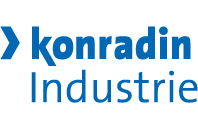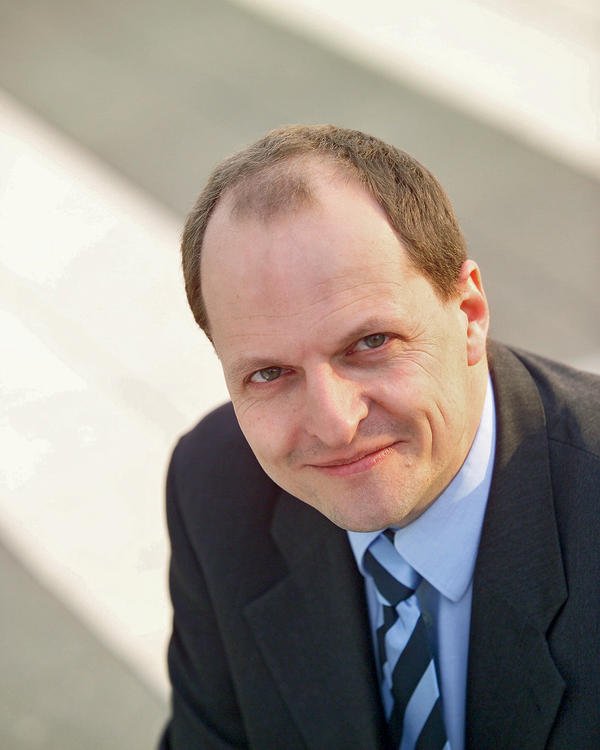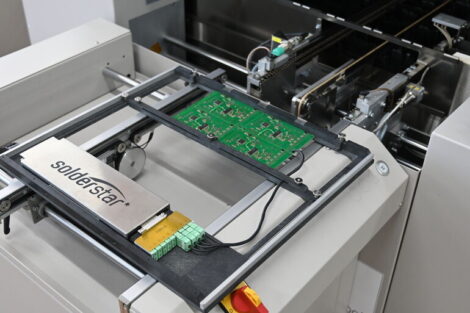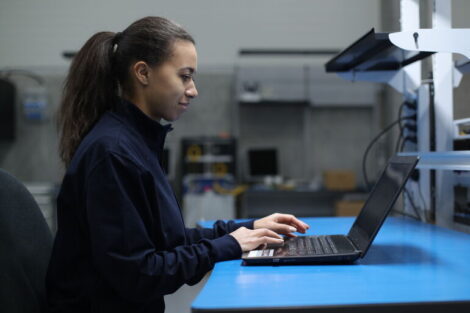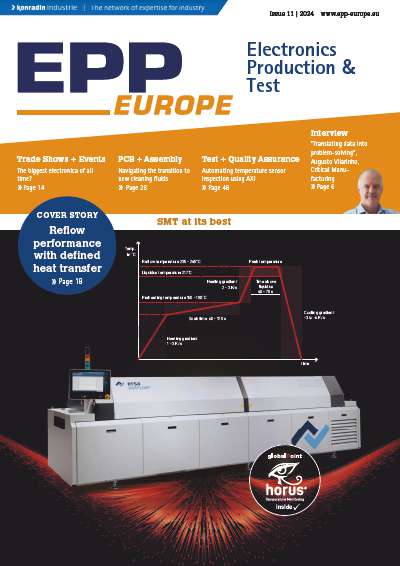The world of information technology is changing into something quite new and it will change the rest of the world in the same process, at the same time, says Carsten Barth, Elcoteq’s Director for Marketing and Communications.
Carsten Barth says that there are several undercurrents that will change the world probably in even a more profound way than technology development did in the last 20 to 30 years. Nobody really knows what will happen, but this fact only encourages to analyze the conditions and tendencies which lay under the rapid technological progress. It changes the ways we work and search for our entertainment. “The first deep change will be within the information industry. As a result of the technological change companies get mixed in each other’s businesses and in a few years time the distinction between traditional telecom operators and, say, e.g. entertainment content providers, or game planners, will be much less clear than it is today. Actually, it might be impossible to say where one ends and the other begins,” Barth stresses.
Who would have – lets say again 20 years ago – thought that a leading computer manufacturer will be worldwide the biggest seller of music or that the world leader in mobile phones will buy the world leader in electronic maps, just because localization had become one of the key functions in the telephone business.
“And, just a few years ago, using a mobile phone or wide band communication was expensive. Compared to those days, now the cost for a user is close to zero. This has happened both because the actual cost of manufacturing of mobile communication devices has decreased. Another reason is that the business models and pricing of the telecommunication service providers have changed. In some countries you for example can have both the phone and all the speech and SMSs you want for free, just accept the appearance of an occasional advertisement in your phone.”
And in fact, what is the business of Google? Surely not selling search engines, those you can get for free. Barth says that developments of this kind will go on further. In this sense Marshall MacLuhan’s 50 year old battle cry “media is the message” will be true in a quite different sense than it was originally proposed.
Not only words
“The second element in this change is in the nature of the information. During the early stages of telephony it was only speech that was transmitted. There were other types of information, but these were transmitted by a quite different technology. Who remembers telegrams or telexes?”
“The SMS was the first step away from the speech only telecommunication and was soon followed by MMS technology, which allowed pictures and other digital products to be sent from peer to peer.”
“Now researchers estimate that iPhones will be mainly used to get or deliver information via internet and that the role of speech is diminishing to a certain extend. There is a digital device in our pockets or purses, but is not a mobile phone alone, but something else that functions a mobile phone, when that is needed.”
Barth says that this definitely implies one major phenomenon: there always will be digital devices and therefore there will be manufacturers of digital devices. These will probably not only be the same companies which will take care of the digital distribution of music – or maps or movies or television broadcasts from major sport events or world wide poker tournaments – but something quite different.
Playing poker with an American, a South African and a Chinese opponent on your mobile device is an option as easily available a few years from now as writing an article at home instead of in the office.
“Thirdly, the technology of transmitting information worldwide will continue to change as fast as the business models of the market players and the content transmitted will change and have recently changed,” Barth says. “The age of the analogue mobile communication ended just a few years ago. Now we live in the middle of the third generation of mobile communication, soon there will be the 4G and then only the XG as no one cares to count the generations anymore.”
“As the technology progresses, more and more things will be done through wireless communication. There will be not only technologies that will follow each other, but separate communication solutions that will be used simultaneously. Wireless Lan, LTE, WiMax and 4G and more. My device will be able to take advantage from whatever there is available at any specific time, automatically.”
The future is in Asia
Barth stresses that change will not only take place within the various marketplaces, in the content transmitted or in the technology. The geography of the world is changing, too. We have seen that China has already entered the world of modern electronic business, at least to some extent. The other Asian giant, India, will soon follow, or actually is already there. The 19th century was European, the 20th American. In this century the world’s fastest growing, most progressive economies are in Asia. “The poor infrastructure in many rural areas will prove to be no handicap for the communication technology industry at all. There are no old companies to defend the status quo or their outdated technology, telephone wires, for example.”
“New India will be mobile, wireless, digital and growing. Technology won’t set any borders. Real problems are elsewhere, like in the lack of water and reasonable roads,” Barth says. Besides India there will be other areas again changing the face of the earth. Parts of South America, even parts of Africa will fully join the new area of the digital world.
The thing
Carsten Barth says that the fifth strong undercurrent will be in the conversion of devices. Soon most of them are able to do most amazing things. You could pay your bills with Playstation. The equipment needed for a videoconference is in your pocket. And your mobile phone: it can do anything. “In a world of this kind, brands become increasingly important. Top brands will work together with top manufacturers. For the communication technology industry even more manufacturing of the devices and the needed infrastructure can be outsourced as for example in the automotive industry now. When you are selling a car, you are actually selling a brand, an interior, a feeling. The mechanics are basically the same.”
“Yes, somebody pays for all this. And yes, somebody makes money. But it is not self-evident in the way as it has been,” Barth says. Maybe the world’s oldest truth must be modified. There used to be no free lunches. But today, those who eat and those who pay are not necessarily the same persons, at that one lunch. World has become even a more complicated than it has been and this is just the beginning. So the future of mobile communication and it’s devices will be exiting. One can predict that the development will continue and bring even some exiting, not expected results. We all will be part of it.
www.elcoteq.com
EPP Europe 525
Share:
